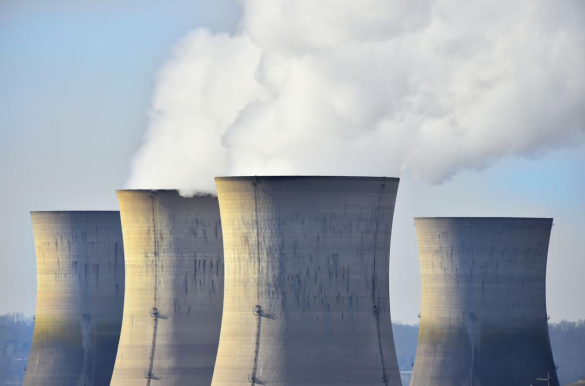KEY POINTS
- Microsoft and Constellation Energy plan to restart Three Mile Island nuclear plant.
- The revival of Unit 1 will supply 835 megawatts of power, enough to serve 700,000 homes.
- The restart requires federal, state, and local approvals, expected to be completed by 2027.
Constellation Energy and Microsoft have partnered to restart a unit of Pennsylvania’s Three Mile Island nuclear plant, marking a first-ever nuclear plant revival. However, key regulatory permits are still pending.
The power deal between Constellation Energy and Microsoft is part of a larger effort to address surging U.S. electricity demands, driven by data centers for technologies such as artificial intelligence and cloud computing. Nuclear energy, known for being nearly carbon-free and reliable, has become an attractive option for companies like Microsoft seeking uninterrupted power and reduced carbon footprints.
According to Constellation’s CEO Joe Dominguez, nuclear energy offers consistent, dependable power. “Nuclear plants are the only energy sources that can consistently deliver on that promise,” Dominguez said in a statement. He emphasized the need for nuclear energy in meeting the growing energy demands of data centers.
The Three Mile Island nuclear plant, infamous for a 1979 partial meltdown incident in its Unit 2, was shut down in 2019 due to economic reasons. The new deal will focus on reviving Unit 1, while Unit 2 will remain dormant. Although Constellation has yet to apply for the necessary permits with federal nuclear regulators, the company expects the Nuclear Regulatory Commission (NRC) review process to be completed by 2027.
Economic and energy implications
The revival of Three Mile Island will require a $1.6 billion investment, with the plant expected to be operational by 2028. According to Reuters, the power generated from the plant, 835 megawatts, will be used to offset the electricity consumption of Microsoft’s data centers. This deal is expected to supply enough power to service around 700,000 homes.
Microsoft’s vice president of energy, Bobby Hollis, highlighted the company’s commitment to becoming carbon negative by supporting decarbonization efforts. “This agreement is a major milestone in Microsoft’s efforts to help decarbonize the grid,” Hollis said.
However, restarting the plant presents challenges. Federal, state, and local approvals are still needed. Scott Burnell, spokesperson for the NRC, stated, “It’s up to Constellation to lay out its rationale for justifying restart, so we’re prepared to engage with the company on next steps.”
Growing tech and energy partnership
Big tech companies, including Microsoft, have increasingly turned to nuclear energy as a reliable source for data centers. Microsoft has also partnered with Washington-based fusion company Helion to create additional power options for its facilities. Nuclear energy is gaining momentum in tech circles, with figures such as OpenAI CEO Sam Altman and Microsoft co-founder Bill Gates promoting it as a solution to growing power needs.
In line with this trend, Constellation hopes that the federal government will support the Three Mile Island restart, similar to the $1.5 billion loan granted to Palisades Nuclear Generating Station by the Biden administration for its relaunch.
Although the financial details of the Microsoft-Constellation deal have not been disclosed, the companies are optimistic about the long-term benefits. Dominguez emphasized the reliability of nuclear energy, particularly for sectors with significant power demands such as data centers.
As nuclear energy generated 18.6 percent of U.S. electricity in 2023, the power supply deals with tech companies are coming under increasing scrutiny. A similar agreement between Talen Energy and Amazon has faced challenges from electric utilities that argue such deals could spike customer costs or affect grid reliability.



